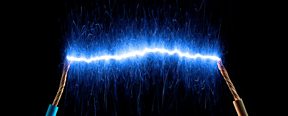Electricity is a fundamental force that powers many aspects of our modern world. It is the flow of charged particles, or electrons, through a conductor such as a wire. This flow of electrons can be harnessed and controlled to provide energy for a wide range of applications, from lighting and heating to transportation and communication.

Image Source: https://ichef.bbci.co.uk/images/ic/288xn/p061076s.jpg
At its most basic level, electricity is the movement of charged particles from one point to another. This movement can be caused by a variety of factors, such as the interaction of magnetic fields or the presence of a voltage difference. Electrons are negatively charged particles that move from areas of high charge to areas of lower charge, creating an electrical current.
Electricity is generated in a number of ways, including through the burning of fossil fuels, the use of nuclear energy, or the harnessing of renewable resources such as wind or solar power. Once generated, electricity is typically transmitted over long distances to where it is needed, either through overhead power lines or underground cables.
In order to use electricity, it must be transformed into a usable form. This is typically done through the use of transformers, which convert the high voltage, low current electricity used in transmission into the low voltage, high current electricity used in most homes and businesses.
Overall, electricity is an essential part of modern life, powering everything from our homes and workplaces to the devices we use on a daily basis. Understanding the basics of electricity is important not only for practical purposes, but also for a deeper appreciation of the world around us.